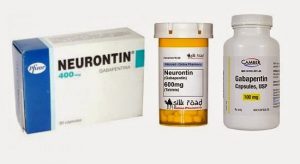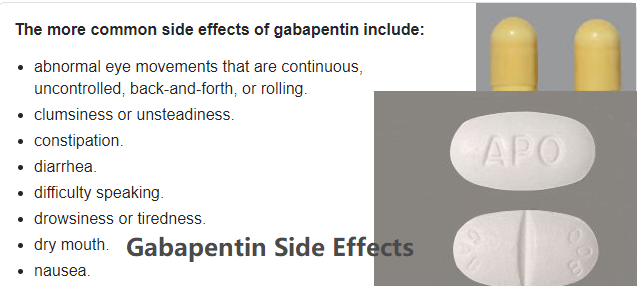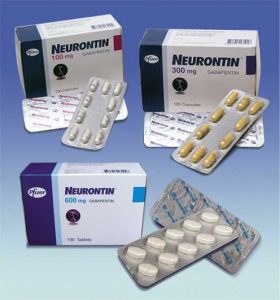Applies to gabapentin: compounding powder, oral capsule, oral solution, oral tablet, oral tablet extended release

Cardiovascular
Common (1% to 10%): Peripheral edema, vasodilation, hypertension
Rare (less than 0.1%): Atrial fibrillation, heart failure, myocardial infarction, cerebrovascular accident, ventricular extrasystoles, bradycardia, premature atrial contraction, pericardial rub, heart block, pericardial effusion, pericarditis
Postmarketing reports: Cardiac arrest, chest pain, palpitation, tachycardia[Ref]
Dermatologic
Common (1% to 10%): Abrasion, facial edema, purpura, rash, pruritus, acne
Uncommon (0.1% to 1%): Alopecia, eczema, dry skin, increased sweating, urticaria, hirsutism, seborrhea, cyst, herpes simplex
Rare (less than 0.1%): Stevens-Johnson syndrome, angioedema, erythema multiforme, drug rash (with eosinophilia and systemic symptoms), herpes zoster, skin discolor, skin papules, photosensitive reaction, psoriasis, desquamation, maceration, skin nodules, subcutaneous nodule, melanosis, skin necrosis, local swelling
Frequency not reported: DRESS/multiorgan hypersensitivity[Ref]
Endocrine
Rare (less than 0.1%): Hyperthyroid, hypothyroid, goiter, hypoestrogenism, ovarian failure, epididymitis, cushingoid appearance[Ref]
Gastrointestinal
Common (1% to 10%): Diarrhea, dry mouth or throat, constipation, nausea, vomiting, dyspepsia, dental abnormalities, gingivitis, abdominal pain, flatulence
Uncommon (0.1% to 1%): Glossitis, gum hemorrhage, thirst, stomatitis, increased salivation, gastroenteritis, hemorrhoids, bloody stools, fecal incontinence
Rare (less than 0.1%): Pancreatitis, dysphagia, eructation, pancreatitis, peptic ulcer, colitis, blisters in mouth, tooth discoloration, perlèche, salivary gland enlarged, lip hemorrhage, esophagitis, hiatal hernia, hematemesis, proctitis, irritable bowel syndrome, rectal hemorrhage, esophageal spasm
Frequency not reported: Dehydration[Ref]
General
The most common adverse reactions associated with the use of this drug were dizziness, somnolence, and peripheral edema.[Ref]
Genitourinary
Common (1% to 10%): Incontinence, impotence
Uncommon (0.1% to 1%): Hematuria, dysuria, urinary frequency, cystitis, urinary retention, vaginal hemorrhage, amenorrhea, dysmenorrhea, menorrhagia
Frequency not reported: Breast hypertrophy, gynecomastia, sexual dysfunction (including changes in libido, ejaculation disorders, and anorgasmia)[Ref]
Hematologic
Common (1% to 10%): Leucopenia, purpura
Uncommon (0.1% to 1%): Anemia, lymphadenopathy
Rare (less than 0.1%): Thrombocytopenia, thrombophlebitis, leukocytosis, lymphocytosis, increased bleeding time
Frequency not reported: Blood creatine phosphokinase increased, coagulation defect[Ref]
Rare (less than 0.1%): Hepatitis, jaundice, elevated liver function tests SGOT (AST), SGPT (ALT), and bilirubin, hepatomegaly, hepatotoxicity[Ref]
Hypersensitivity
Very rare (less than 0.01%): Hypersensitivity syndrome, a systemic reaction with a variable presentation that can include fever, rash, hepatitis, lymphadenopathy, eosinophilia, and sometimes other signs and symptoms[Ref]
Metabolic
Common (1% to 10%): Weight gain, hyperglycemia
Postmarketing reports: Hyponatremia[Ref]
Musculoskeletal
Common (1% to 10%): Back pain, arthralgia, myalgia, twitching
Uncommon (0.1% to 1%): Tendonitis, arthritis, joint stiffness, joint swelling
Frequency not reported: Rhabdomyolysis, myoclonus
Postmarketing reports: Elevated creatine kinase, rhabdomyolysis[Ref]
Nervous system
Very common (10% or more): Somnolence (21%), dizziness (17%), ataxia (13%)
Common (1% to 10%): Abnormal gait, incoordination, neuralgia, tremor, dysarthria, hyperkinesia, seizures, dysarthria, paresthesia, hypesthesia, coordination abnormal, increased/decreased/absent reflexes, vertigo
Uncommon (less than 1%): Hypokinesia
Rare (less than 0.1%): Movement disorders (e.g., choreoathetosis, dyskinesia, dystonia), loss of consciousness
Frequency not reported: Withdrawal precipitated seizure/status epilepticus
Postmarketing reports: Movement disorder[Ref]
Ocular
Common (1% to 10%): Amblyopia, conjunctivitis, diplopia, nystagmus
Uncommon (0.1% to 1%): Cataract, dry eyes, eye pain, visual field defect, photophobia, bilateral or unilateral ptosis, eye hemorrhage, hordeolum, eye twitching
Rare (less than 0.1%): Eye itching, abnormal accommodation, eye focusing problem, watery eyes, retinopathy, glaucoma, iritis, corneal disorders, lacrimal dysfunction, degenerative eye changes, blindness, retinal degeneration, miosis, chorioretinitis, strabismus[Ref]
Oncologic
Uncommon (0.1% to 1%): Breast cancer
Rare (less than 0.1%): Non-Hodgkin’s lymphoma[Ref]
Other
Very common (10% or more): Fatigue (11%), fever (11%)
Common (1% to 10%): Asthenia, accidental injury, otitis media, tremor, pain
Rare (0.01% to 0.1%): Tinnitus
Very rare (less than 0.01%): Sudden unexplained death in patients with epilepsy
Frequency not reported: Sleepwalking, withdrawal symptoms, hearing loss, earache, tinnitus, inner ear infection, otitis, taste loss, unusual taste, ear fullness, perforated ear drum, sensitivity to noise, eustachian tube dysfunction, otitis externa, odd smell, labyrinthitis[Ref]
Common (1% to 10%): Abnormal thinking, amnesia, depression, hostility, confusion, emotional liability, anxiety, nervousness, insomnia
Uncommon (0.1% to 1%): Mental impairment
Rare (less than 0.1%): Hallucinations
Frequency not reported: Suicidal behavior and ideation, hypomania[Ref]
Renal
Rare (less than 0.1%): Acute renal failure[Ref]
Respiratory
Common (1% to 10%): Pharyngitis, dyspnea, cough, bronchitis, respiratory infection, rhinitis
Rare (less than 0.1%): Pulmonary thrombosis, pulmonary embolism
Frequency not reported: Pseudo-croup, hoarseness

